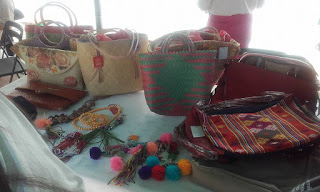Let me introduce you to my second home. As many of you already know, the first time I emigrated to Italy with my parents was on my 2nd birthday, and since then our lives remained some sort of permanent back-and-forth between Bucharest and Milan. Milan may not be the typical setting of Italian movies, neither is it romantic and unique like Venice, or full of history and culture like Rome or Florence, or all sea and sunshine and Mediterranean food like Southern Italy. Plus, if you ask any of my friends from the South if they like Milan, 90% will tell you that they hate it! :)
Nevertheless, it has its own charm and atmosphere. And I love it. Apart from all the childhood memories associated, I will give you various reasons to love it too. Or at least to visit it.
Most of its buildings are massive, yet jewels of architecture. Milan is known mainly as the Italian capital of business (this is what brought us there in the flourishing 80s as well), being home to most Italian headquarters of major national and international companies. But also the capital of fashion and brands, and in some cases you actually feel like some stores have remained unaltered since their first opening, keeping their image and their quality intact.
Milan is also the most multicultural city in Italy, and the fact that it hosted Expo 2015 is confirming this fact. Plus, it is home to various immigrant communities, although this is quite a controversial topic, which would deserve a separate entry.
Milan is also the most multicultural city in Italy, and the fact that it hosted Expo 2015 is confirming this fact. Plus, it is home to various immigrant communities, although this is quite a controversial topic, which would deserve a separate entry.
As a tourist, you will surely not miss Piazza Duomo, by far Milan's most famous landmark. From the heart of the city, you can go towards any direction, and you will have something to do or to see. As you come out of the Duomo (after some more or less serious queuing), on the left hand side you can pop in and visit some arts exhibitions at Palazzo Reale or Museo del '900.
Or, on the right hand side, you can first look for the Rinascente, one of the most famous Italian department stores - but please make sure you have enough money on your credit card, or, if not, make sure you leave quickly, in order not to see too many things that are 'over-budget'. :)
Afterwards, on the same side, you come accross Galleria Vittorio Emanuele II, which is full of fancy restaurants and designer label shops. You have to cross it, and I will also give you some homework: there is a bull somewhere. You have to find it and discover its legend. Afterwards, you will have to be less-than-nice to him, but you will see that there is a good reason for it. :)
When exiting the gallery, you will come accross Teatro alla Scala - if you like opera, that's the place for you. Tickets to shows can be bought in the office located in the Duomo subway. Queues are sometimes long, prices are high, but I assure you it is worth it. You will feel really classy.
Or, if not, let's go back to Piazza Duomo and go straight ahead as you come out of the cathedral. Enter Via Dante, and stop briefly to admire the different architectural styles of Piazza dei Mercanti, first thing on your left. Proceed till the other end of the street, and you will find a medieval masterpiece: Castello Sforzesco, which is definitely a must-visit, and afterwards you can relax in the middle of nature at its other end, in Parco Sempione.
Other places I recommend visiting are:
... the Cimitero Monumentale - yes, it is a cemetery, yes, it seems like a gloomy thing to visit, but for the sake of history, sculpture and architecture, it is worth it too.
... other museums, such as Pinacoteca di Brera, La Triennale and Museo della Scienza e della Tecnologia.
In Milan, like in all Italy, you will eat really well. For dinner especially, I will reccommend a typical north Italian practice, which is called 'aperitivo', or 'apericena', especially on the Navigli rivers area, which is also one of the most bohemian areas of the city. Basically, between 7 and 10-ish in the evening, most bars offer all-you-can eat buffets plus one drink of your choice, at a fixed price varying around 8-10 euros.
After dinner, maybe you will like to go dancing. I highly recommend Old Fashion, especially in the summer (but beware of the mosquitos), in the Parco Sempione area, which has been a regular meeting point for me and my friends, Le Banque in the city center, within walking distance from Piazza Duomo, or the several clubs and discos in the Corso Como, or, if you're a more rebellious-rocker type, the Alcatraz, quite far from the city center, but nevertheless a cool place.
So, have I offered enough arguments? You may not need more than 4-5 days, depending on how you organize yourself, or on your own pace as a tourist, but, as you can see, you will not lack in options. Do you think you will like Milano? I'm waiting for you to tell me! :)








































